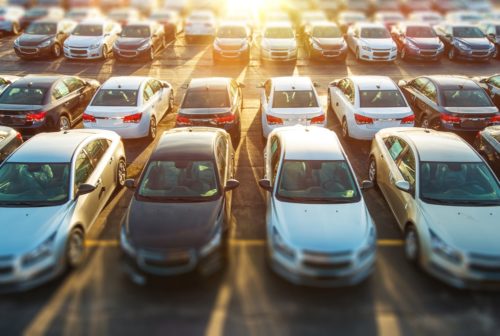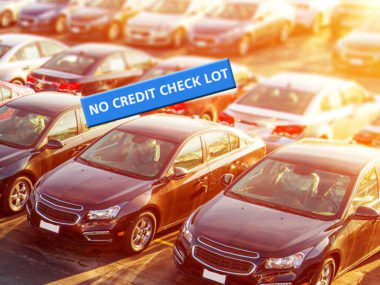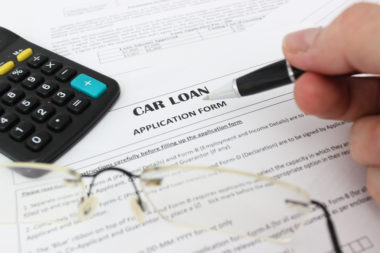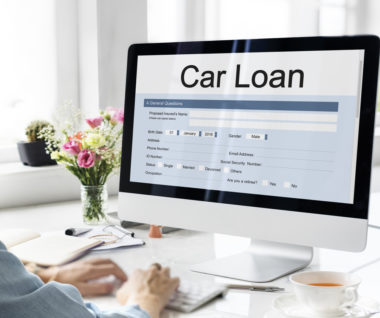Getting a new car is a big decision, and it deserves a lot of contemplation. People usually weigh their options for a while, deciding between old versus new, four doors versus two, or red versus blue. One of the biggest decisions is whether you are going to lease or buy the car, but the difference between the two is not as obvious as it is with the other categories. While you might innately know whether you’d prefer a red car or a blue car, most don’t know whether they should buy or lease their next car. So what’s the difference anyway?
The simple answer is that buying a car results in ownership, while leasing a car is just a way to borrow a vehicle for a set number of years until you have to return it. So while you can drive newer vehicles for a shorter amount of time, you don’t have anything ownership equity to show for it at the end of your lease term. Buying a car, even with an auto loan, lets you build equity — the payments you make on the loan give you ownership of the car you are financing. However, it’s not just definitions that are different, but how you go about each process. As with most financial matters, credit is important in both leasing and buying a car, though not in the same way for each.
Table of Contents
What To Do When Buying A Car
When you are buying a car, you will likely have to get a loan, unless you happen to have enough to pay for the car outright. If you do, then choose that option first.
However, most do not have that much in savings, so you will have to secure a loan from a bank. You can do so at the dealership, but you will need to make a separate trip if you are buying from a private party. Assuming you qualify, the bank with have a lien on the car— basically, they will technically own the vehicle until you pay off the debt. Failure to make payments, and the bank could repossess your car to cover the debt.
You’ll also have to add this car to your insurance. If you have existing insurance, you’ll have a time allowance in which you need to add your new car. Otherwise, you’ll have to get insurance at the dealership and have your agent fax it there; dealerships won’t let you drive off the lot without it.
What Do You Need When Buying a Car?
Always double check with your dealership or the private party if it’s a special circumstance. Generally, all you need is:
- Your driver’s license
- Proof of insurance, if you’ve already got it; otherwise, your insurance agent’s phone number
- If you’re trading in, bring your pink slip for your old car. It’ll make the process much faster.
- Money for the down payment. Aim for 20 percent.
- If you have poor credit, you can still buy a car, but may need to take additional steps to prepare for the purchase
What Does it Mean to Lease a Car?
Leasing a car is a way of borrowing it for a couple years. You still have to make payments, they’re just smaller than it would be if you were buying the car.
Every car depreciates over time. The dealership takes the difference between what the car is worth now and what they project it will be worth when your lease term is up. Your payments are instead based off that amount instead of the entire worth of the vehicle.
This means that you can afford a more expensive vehicle if you lease instead of buy, but you will have to return the car at the end of your lease period, which is usually about two or three years.
What Credit Score is Needed to Lease a Car?
You’ll need a credit score of 600 or higher to qualify for a lease with most vehicles, but the best interest rates are reserved for those with credit scores of 700 or higher. If you don’t fit in these categories, you need to raise your credit score in order for leasing to be a viable option.
Your credit score is more important when you’re leasing a car than when you’re buying. Dealers are taking a larger risk, so they need to rely more on your score to prove your reliability.
What Else Do I Need to Lease a Car?
Besides a great credit score, you will need:
- Your driver’s license
- Proof of income and residence
- Full-coverage insurance
- And estimation of your annual mileage
If you lease a car, you will be required to purchase a more expensive insurance plan. This is to make sure that the dealer’s investment is secure. Additionally, you will have to agree to only put a certain number of miles on the car during your term, and you will be charged for going over, so know how often you plan on driving the car.
Whether you should buy or lease a car is up to you. If you prefer to have something to show for your time and trade in for you next model, buying might be a smarter choice. However, if you have excellent credit and enjoy a new car every few years, leasing might be for you. Ultimately, continuously leasing will probably be more expensive, but it’s worth it to people who crave new cars and can afford the payments.
How can you improve your credit score and get a better interest rate on your car loan or lease? Visit our credit score resource and learning center to find out.
Image Source: https://depositphotos.com/





